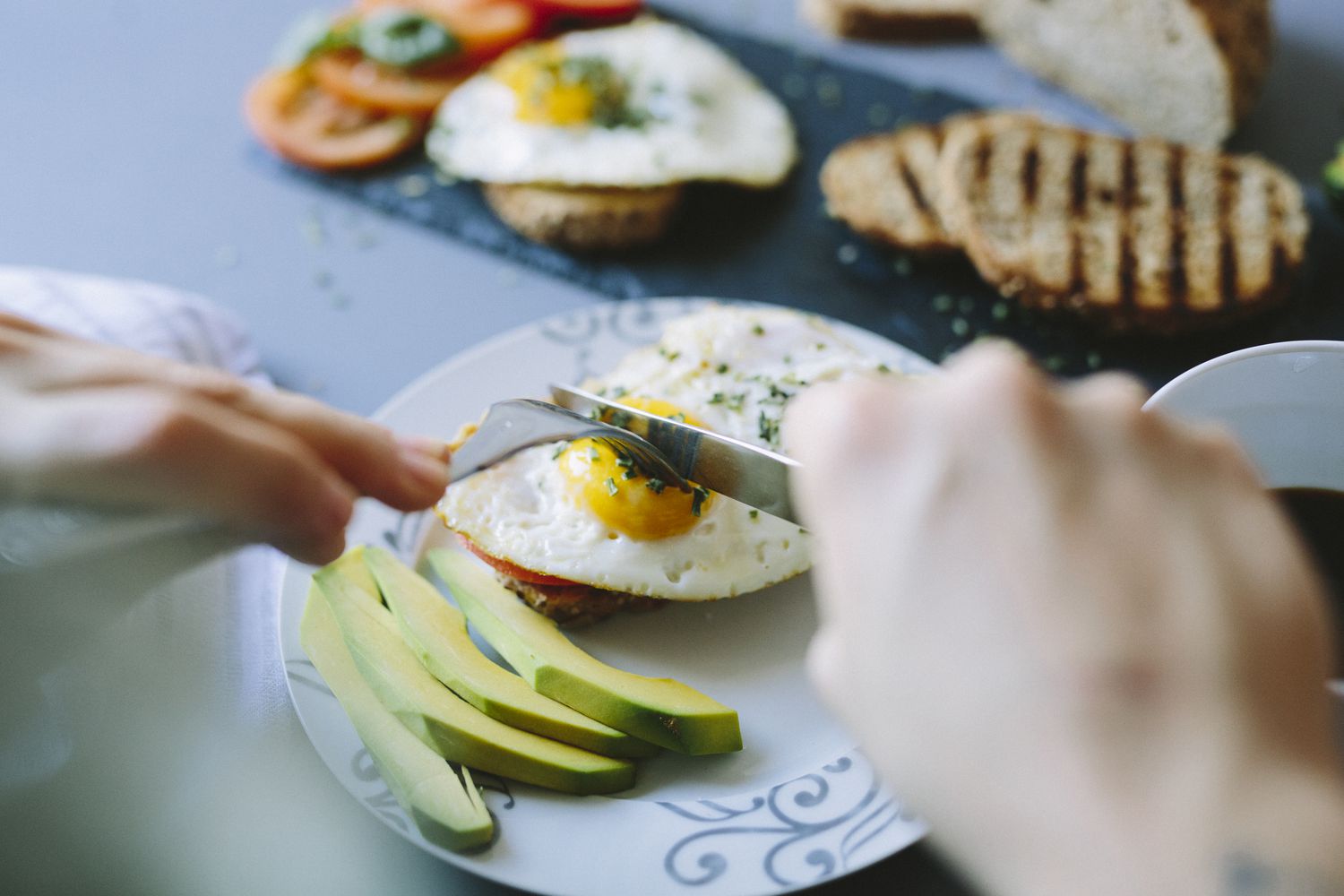What's the Optimal Breakfast for Weight Loss? It May Vary for Men and Women

Men and women may want to choose different breakfasts if they're looking to manage their weight, according to a new study.
The research, published last month in the journal Computers in Biology and Medicine, found that men’s bodies are better able to process energy from high-carbohydrate meals in the morning, while women do better with breakfasts that have a higher percentage of fat. The difference could be explained by differences in men’s and women’s metabolisms.
“Men and women respond differently to high-carbohydrate and high-fat breakfasts,” study author Stéphanie Abo, an applied mathematics PhD candidate at the University of Waterloo, told Health. “This difference primarily influences weight management, and can contribute to weight loss.”
To come to these conclusions, the study authors used mathematical modeling to look at how men’s and women’s bodies reacted to high-fat and high-carbohydrate meals, explained Elizabeth Shaw, RDN, a registered dietitian nutritionist and author.
“Women favor fat after fasting while men favor carbs, meaning women may benefit more from a breakfast meal that packs dietary fat—like eggs with avocado—whereas men see greater benefit from a morning meal packed with oatmeal and fruit,” Shaw told Health.
Here’s what experts had to say about why men’s and women’s bodies might process high-fat or high-carbohydrate meals differently and what to know before switching up your breakfast routine.
To investigate this connection further, the researchers created a model to look at how a healthy young adult man’s and woman’s metabolisms might respond to a meal of carbohydrates and fats after fasting for 12 to 14 hours (overnight). Using existing data, they evaluated how this meal might affect the brain, heart, skeletal muscle, gastrointestinal (GI) tract, liver, fat tissue, and “other tissues.”
The researchers found that men’s and women’s bodies would react differently to the meals, largely because of metabolic differences in how each sex burns fat.
“According to our model, women break down about 20% more fat in their fat tissue, leading to higher glycerol [sugar] levels in the bloodstream for the liver to use,” said Abo. “In contrast, men typically rely more on glucose for energy, which they store mainly in their muscles and liver.”
In other words, after an overnight fast, stores of blood sugar are more depleted in men than they are in women. Men may want to replenish those stores with carbohydrate-rich foods in the morning, but fatty foods can be beneficial for women in particular—it takes the body longer to absorb these fats, so women's bodies can maintain energy levels and burn glucose stores during that time, Abo said.
“The results of the model suggest that women store more fat immediately after a meal but also burn more fat during a fast,” study author Anita Layton, PhD, professor of applied mathematics, computer science, pharmacy, and biology at the University of Waterloo, said in a press release.
There are a few possible reasons why “men favor carbohydrate metabolism while women favor lipid [fat] metabolism,” Abo added.
“Women of reproductive age typically have higher levels of estrogen and progesterone, which influence fat storage and metabolism, especially during different phases of the menstrual cycle,” she said.
Plus, existing research has shown variations between sexes in metabolic rates, body composition, liver and fat tissue, and more.
This pattern of fat-burning after breakfast might be continued during the day, Abo noted, but other factors—such as physical activity levels or menstrual cycle stage—could affect a woman’s metabolism as the day goes on.
Though the study’s results suggest that women rely more on fat-based metabolism than men do, people should consider their individual health needs before making any changes to their diet, including increasing their fat intake, said Allison Childress, PhD, RDN, associate professor of nutritional sciences at Texas Tech University.
“The interactions between fat metabolism, hormones, lean mass, and energy balance differ greatly from person to person,” Childress told Health.
Though these findings are interesting, it’s a stretch to suggest that, for breakfast, women should always stick to healthy fats such as eggs, avocado, and yogurt, while men should always stick to carbs, added Melanie Jay, MD, associate professor of medicine and population health at New York University Grossman School of Medicine.
“There are so many other variables that influence metabolism such as microbiome, degree of insulin resistance, current levels of adipose [fat] tissue, physical fitness, etc.,” Jay told Health. “We can’t make blanket dietary recommendations at this time based on sex.”
It’s also important to note that this study’s modeling was done in healthy individuals, so it’s not totally clear whether eating this way could be helpful for weight management in people with obesity or other chronic conditions, she said.
“It’s too soon to really put these data into diet guidelines,” Sharon Palmer, RDN, a registered dietitian nutritionist and author, told Health.
More research into the metabolic differences between men and women is needed, as most of the data in this area focuses solely on men, Jay said. More information about how sex influences metabolism could help with drug development or help inform personalized nutrition recommendations, she said.
But experts agreed people should tread lightly before making any drastic changes to their diets because of the new findings. Filling your plate with whole grains, fruits, protein, and healthy fats—including eggs, yogurt, or whole-wheat toast—is generally considered a nutritious breakfast.
“What is going to have the biggest impact on your health and how your body metabolizes food is not only what you put in your body, but also your genetics, lifestyle factors, and level of fitness,” said Shaw. “Considering these things first—then research like this—will help guide you in making the best food choices for yourself.”




